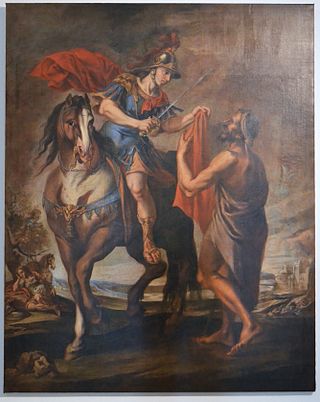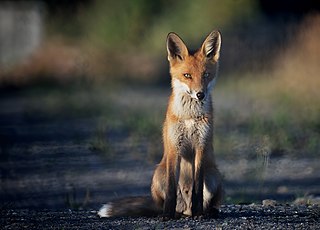Selby is a town in Yorkshire, England.
Contents
- Placenames
- Australia
- Canada
- South Africa
- United Kingdom
- United States
- People
- Given name
- Surname
- Titles
- Fiction
- See also
Selby may also refer to:
Selby is a town in Yorkshire, England.
Selby may also refer to:
Shelley is a given name and surname. In many baby name books, Shelley is listed as meaning "meadow’s edge" or "clearing on a bank". It is Old English in origin. As with many other names, Shelley is today a name given almost exclusively to girls after historically being male. It is commonly used as a nickname for Michelle. Shelley is also a transferred surname used by those in Essex, Suffolk and Yorkshire, particularly in settlements where a wood/clearing was beside a ledge or hillside. Shelly is a common alternative spelling. It is featured in tile on the ceiling of the Library of Congress in Washington D.C.
Robert, Bob or Bobby Smith, or variants thereof, may refer to:
James Scott may refer to:
Edwards is a patronymic surname of English origin, meaning "son of Edward". Edwards is the 14th most common surname in Wales and 21st most common in England. Within the United States, it was ranked as the 49th-most common surname as surveyed in 1990, falling to 51st in 2014.
Scott is a surname of Scottish origin. It is first attributed to Uchtredus filius Scoti who is mentioned in the charter recording the foundation of Holyrood Abbey and Selkirk in 1120, the border Riding clans who settled Peeblesshire in the 10th century and the family lineage of the Duke of Buccleuch.
Jackson is a common surname of Scottish, Irish and English origin eventually becoming a common American surname also. In 1980, Jackson was the 24th most common surname in England and Wales. In the 1990 United States Census, Jackson was the thirteenth most frequently reported surname, accounting for 0.3% of the population.

Burke is a Norman-Irish surname, deriving from the ancient Anglo-Norman and Hiberno-Norman noble dynasty, the House of Burgh. In Ireland, the descendants of William de Burgh had the surname de Burgh, which was gaelicised in Irish as de Búrca and over the centuries became Búrc, then Burke, and Bourke.

Martin may either be a given name or surname. In Scotland, Martin or McMartin is a common surname of Scottish Gaelic origin. Martin is, however, more common as a masculine given name in many languages and cultures. It comes from the Latin name Martinus, which is a late derived form of the name of the Roman god Mars, protective godhead of the Latins and, therefore, god of war. The meaning is usually rendered in reference to the god as "of Mars", or "of war/warlike" ("martial").
Richardson is an English surname most commonly found in North East England. The prefix Richard is a given name popularised during the Middle English period derived from the Germanic ric ("power") and hard ("brave"/"hardy"). The suffix -son denotes "son/descendant of". The names Richard and Richardson are found in records as early as 1381 in Yorkshire, England. There are variant spellings including the Swedish Richardsson. People with the name Richardson or its variants include: Dickson, Dixon.
Holland is an English habitational name from Holland, a division of Lincolnshire, or any of the eight villages in various parts of England so called, from Old English hōh ‘ridge’ + land ‘land’.
Norman is both a surname and a given name. The surname has multiple origins including English, Irish, Scottish, German, French, Norwegian, Ashkenazi Jewish, and Jewish American. The given name Norman is mostly of English origin, though in some cases it can be an Anglicised form of a Scottish Gaelic personal name.

Norton is a surname with origin from the basic Early English norþ + tun, meaning North settlement. There are many English villages called Norton or including Norton as part of the name, e.g. Midsomer Norton, Chipping Norton, Brize Norton etc. When surnames started to be used in the Middle Ages, a man from such a village might have the name added e.g. Tom of Norton. Alternatively a man from the north side of any village might be given the name Tom Norton to distinguish him from a Tom from the south side. A secondary source for the surname is from the anglicisation of Celtic surnames. It is also sometimes found as a Jewish surname. The famous Emperor Norton in San Francisco was of Jewish origin from a South African settler family.
Bowen is a Celtic surname representing two separate Celtic ethnicities, the Welsh ab Owain meaning "son of Owen" and the Irish Ó Buadhacháin meaning "descendant of Bohan". The Bowen lineage can be traced back to Llwyngwair in the 11th century, near Nevern in Pembrokeshire. The Bowen surname was adopted in 1424. There are seven Bowen crests and the Bowen/Owen family group share a tartan. The Bowen/Bowens surnames are more commonly found in southern Wales, while the Owen/Owens surnames are more commonly found in northern Wales.
Harrington is an English habitational name from places in Cumbria, Lincolnshire, and Northamptonshire. It is also a common surname in southwest Ireland, where it was adopted as an Anglicized form of the Gaelic surnames Ó hArrachtáin and Ó hIongardail. Notable people with the surname include:
Crawford is a surname and a given name of English and Scottish origins.

Fox is a surname originating in England and Ireland. The derivation is from the Middle English "fox", itself coming from the Old English pre 7th century "fox". The surname first appears on record in the latter part of the 13th century, with the first recorded spelling in 1273 to be that of John Fox in the "Hundred Rolls of Yorkshire", England. In Ireland, Fox is mainly a translation of the Old Gaelic "Mac a'tSionnaigh".
Barrett is an Irish surname. It is derived from the Gaelic Bairéid. Popular in both south-east and south-west Ireland, it is most common in the Irish counties of Mayo and Galway but particularly County Cork. The Barretts first appeared in Ireland following the Norman invasion. As with many other Anglo-Norman families, they were quickly assimilated into Irish culture. Another translation for Barrett is "warlike people".
Sidney is an English given name deriving from the surname, itself of two different derivations depending on the origins of the family. In some cases a place name, itself from Old English, meaning "wide water meadow", and in others from the French place name "St. Denis".
Ingram or Ingrams is a surname, from the given name Ingram. Notable people with the surname include:
Kemp is a surname of English origin which means "soldier". Notable people with the surname include: